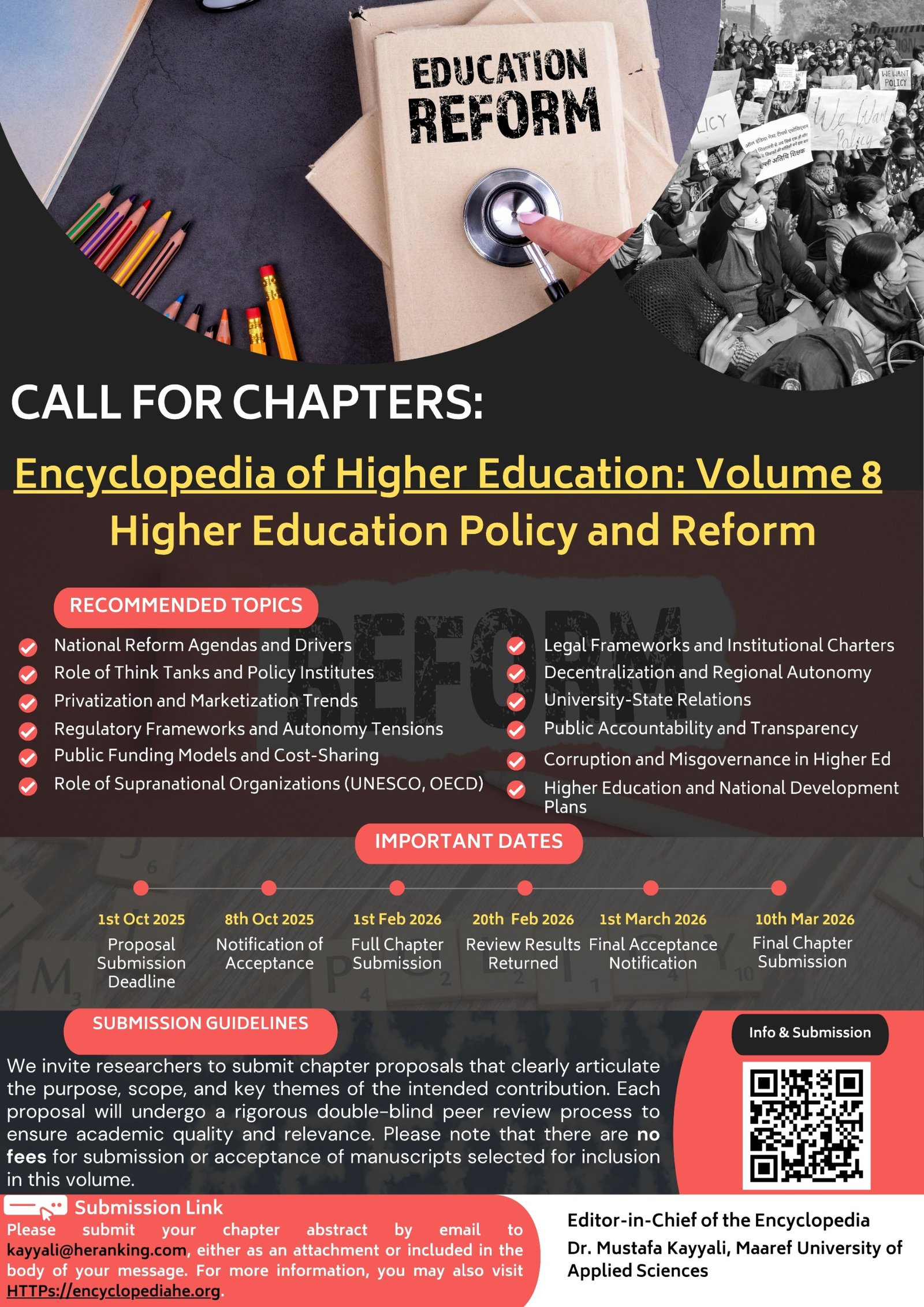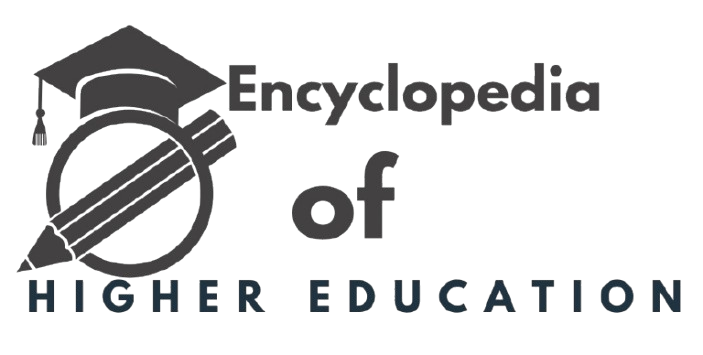Volume 8. Higher Education Policy and Reform
Overview
This volume explores the shifting architecture of higher education policy and its role in shaping institutional behavior, national development, and global competitiveness. From regulatory frameworks and public funding models to privatization, massification, and digital transformation, this volume provides a critical examination of how educational policies emerge, evolve, and impact systems across diverse political and economic contexts. It highlights both top-down reform agendas and bottom-up pressures for change, while also analyzing the influence of supranational bodies, crisis responses, stakeholder engagement, and legal instruments. The chapters also interrogate the interplay between autonomy and accountability, addressing the challenges posed by demographic transitions, equity demands, and global labor market shifts. Special emphasis is placed on how education reforms can drive or hinder innovation, social justice, and institutional resilience.
Importance and Impact
Higher education policy is not merely a regulatory exercise—it is a catalyst for societal transformation, economic mobility, and national identity formation. This volume emphasizes that sound policy-making requires balancing state interests with institutional autonomy, global models with local relevance, and innovation with equity. As the world confronts disruptions such as pandemics, climate crises, and technological upheaval, policy frameworks must become agile, inclusive, and anticipatory. By analyzing policy successes and failures across diverse systems, this volume offers strategic insights into what works, what doesn’t, and why. It serves as a crucial guide for governments, university leaders, and reform advocates seeking to build responsive, evidence-based, and socially responsible higher education systems.
Submission Guidelines
Word Count: 5,000 to 6,000 words
Each chapter should be between 5,000 and 6,000 words, including references. This length allows contributors to develop their argument with sufficient depth while remaining accessible to a global readership.
Language: English
All submissions must be written in clear, academic English. Contributors are encouraged to use inclusive language and ensure clarity for an international audience.
Citation Style: APA (7th edition preferred)
Please follow APA Style, 7th edition, for all in-text citations, reference lists, headings, and formatting. Consistency in referencing ensures academic integrity and ease of cross-referencing.
References: At least 80% published after 2021
To ensure the relevance and timeliness of each chapter, at least 80% of cited sources should be published from 2021 onward. This helps maintain the encyclopedia’s credibility and reflects current research and policy discussions.
File Format: Microsoft Word (.docx)
Submissions must be uploaded in Microsoft Word format (.docx only). This format allows for easier editing, formatting, and review throughout the publication process.
Interested in Contributing?
Researchers and authors who wish to participate in the Encyclopedia of Higher Education project are invited to send their abstract, chapter idea, or full submission directly to: kayyali@heranking.com
Alternatively, you may fill out the following form to express your interest and submit your proposal.

Recommended Topics for Contribution
Authors are welcome to explore any of the following themes—or propose their own original focus aligned with the volume’s scope:
1- National Reform Agendas and Drivers
2- Role of Think Tanks and Policy Institutes
3- Privatization and Marketization Trends
4- Regulatory Frameworks and Autonomy Tensions
5- Public Funding Models and Cost-Sharing
6- Legal Frameworks and Institutional Charters
7- Massification and Resource Constraints
8- Higher Education and National Development Plans
9- Role of Supranational Organizations (UNESCO, OECD)
10- Decentralization and Regional Autonomy
11- University-State Relations
12- Public Accountability and Transparency
13- Corruption and Misgovernance in Higher Ed
14- Policy Borrowing and Adaptation
15- Evidence-Based Policy Formulation
16- Micro-Credentials and Policy Implications
17- Reforming Admissions Policies for Equity
18- Stakeholder Engagement in Policy Development
19- Digital Policy Frameworks for Online Learning
20- Legal Autonomy of Academic Institutions
21- State-University Compacts and Agreements
22- Public Opinion and Policy Influence
23- Crisis-Driven Educational Reforms (e.g., War, Pandemic)
24- Regulatory Impact on Innovation
25- University Governance as Public Policy
26- National Qualifications Frameworks
27- Education Tax Incentives and Subsidies
28- Decolonial Approaches to Higher Education Reform
29- Institutional Response to Demographic Shifts
30- Higher Education and Regional Development Policies
